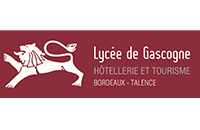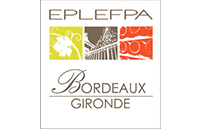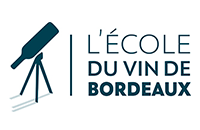5 good reasons to choose the ISVV
Number of cases/year
% graduates
% of jobs after 6 months
% continuing studies
number of places
Source, Université de Bordeaux / Surveys and statistics - 2024
The advantages of the Professional Degree in Tourism, Communication and Territorial Development: Wine Tourism
The aim of this course is to help students with 2 years' higher education who are interested in the vine and wine sector to find their bearings by developing the skills needed to develop wine tourism activities within wine or tourism companies, or within local or socio-professional organisations in Aquitaine and other vineyards in France and abroad.
The sectors and job prospects for future graduates of this professional degree are varied:
- in wineries or producer groups, future graduates will have acquired the skills needed to be: reception, tour, entertainment and tasting managers / marketing and wine tourism department assistants / receptive services and events managers
- in the product distribution sector, travel agencies, tour operators and other organisations, future graduates will have acquired the necessary skills to be: Production managers / Sales and support agents / Network sales coordinators
- in regional and socio-professional organisations, future graduates will have acquired the necessary skills to be: regional project managers / project manager assistants / promotion managers.
The teaching provided during this year of training enables students to :
- Detect the permanent and changing needs and expectations of French and foreign customers in terms of demand, in order to develop relevant responses; service equipment, communication, etc.
- Synthesise all the studies and analyses and translate them into a regional development project.
- Manage the marketing and, above all, the communication of products,
- Conceptualise a wine tourism development project and identify the most appropriate solutions
Through the acquisition of these different skills, students will have the opportunity to :
- Analyse the socio-economic, cultural, sociological and political aspects of the areas covered by its activities.
- Participate in the design and implementation of wine tourism initiatives, and work towards the development and revitalisation of an area
- Participate in the design and implementation of local development projects
- Participate in the organisation of promotional events
The Professional Degree in Tourism, Communication and Territorial Development: Wine Tourism is open to all students who have acquired 120 ECTS in the fields of Biological and Technological Sciences, Viticulture-Oenology, Wine and Spirits Trade, Tourism, Trade in Tourist Products, Hospitality and Catering, Applied Foreign Languages, Geography, Economics and Management, as well as Management and Human Sciences.
It is also open to students holding a foreign diploma of equivalent level and speciality, as well as to various categories of salaried or non-salaried employees (tourism professionals wishing to specialise in wine tourism, wine industry professionals wishing to focus their activity on wine tourism) who hold one of the above-mentioned diplomas.
The minimum English language level is B1 of the European Framework of Reference for Languages (CEFR).
Rhythm of training
Classic course (internship)
The traditional Initial or Continuing Education route leads to a Bachelor's degree (2 semesters) with a full-time curriculum and practical experience in the form of a work placement at the end of the year.
- 672 hours at the training centre
- 100 hours of tutored project work
- 16-week work placement in the same company (end of April - end of August)
![]() Initial training timetable (PDF)
Initial training timetable (PDF)
Work-linked courses
The sandwich course combines work experience in a company with theoretical teaching throughout the degree course.
- 672 hours at the training centre
- 935 hours on the job
![]() Work-linked training calendar (PDF)
Work-linked training calendar (PDF)
Block course
The course can be delivered in blocks of RNCP skills
- The professional bachelor's degree is designed to enable students to enter the world of work directly after graduation.
- Bridges to Master's level are exceptional.
- Exemptions and equivalence of courses may be granted on application to the teaching committee.
The Professional Degree in Tourism, Communication and Territorial Development: Wine Tourism is a 60 ECTS credit course.
The courses are organised over one year, around teaching units (UE) and professional periods grouped into Competency and Knowledge Blocks (BCC).
BCC SOCLES (27 ECTS) :
BCC 1 : Written and oral expression and communication
- Mastering communication issues
BCC 2 : Digital uses
- Mastering digital tools
BCC 3 : Positioning in relation to a professional field
- Fundamentals of viticulture, oenology and tourism : RN Tourism
- Fundamentals of viticulture, oenology and tourism: RN VO
- Understanding the wine industry
BCC 7 : Responsible action within a professional organisation to develop its project
- Professional situations
BCC PARCOURS (27 ECTS) :
BCC 4 : Use of data for analysis purposes
- Intercultural issues relating to wine
- Wine tourism dynamics, players and models
BCC 5 : Implementing marketing and sales strategies
- Marketing
- Project management
- Design and marketing of tourist services
- Tourism promotion and enhancement
BCC 6 : Carrying out a diagnosis and/or an audit to provide advice.
- Technical writing project management
BCC OPENING
- Depending on the terms of the UE chosen
The teaching methods used contribute to the acquisition of knowledge and skills through lectures, practical work, tutorials, site visits and periods spent in companies.
For students on work-study contracts (apprenticeship and professional contracts), the above teaching methods are supplemented by periods spent acquiring skills in companies.
The course is accessible to people with special needs.
Accommodations and individualized support can be offered to you by the PHASE service.
Find out more : Students with special needs - Université de Bordeaux
If you would like to find out more about work-linked training, you can attend one of our information meetings, which are open to everyone.
Dates of the next meetings:
Thursdays, from 1:30 to 2:30 p.m:
- 22 May 2025
- 5 June 2025
- 19 June 2025
- 3 July 2025
Format: online only via ZOOM
Registration required:
Beforehand, please contact ua.isvv@u-bordeaux.fr to register for one of these meetings."
The course can be taken under a work-study contract (apprenticeship contract or professional training contract) once a contract has been signed.
More information on work-linked training contracts
- The apprenticeship guide (CFA/Université de Bordeaux)
- Guide to the professionalisation contract
- Work-linked training calendar
- Take part in meetings / workshops
Prepare for your work-linked training
- Webinar flyer - Thinking of joining a university apprenticeship scheme?
- Methodology sheet, preparing for your interview
- The key stages in signing my apprenticeship contract at ISVV
Apprenticeship course fees
Application schedule for 2026/2027
- Server opens and application forms available for download: March 3 to 24, 2026
- Application deadline: March 25, 2026
- Selection committee reviews applications: March 27 to 30, 2026
- Committee response and invitation to oral interviews: March 31, 2026
- Oral interviews for selected applications: April 6 to 9, 2026
- Final admission response: April 28, 2026
- Start of training: September 1, 2026
Translated with DeepL.com (free version)
Translated with DeepL.com (free version)
Documents to be prepared for the application
En plus du dossier de candidature que vous aurez téléchargé et rempli, vous devrez fournir
- Last diploma obtained
- Transcripts since the baccalauréat
- One-page curriculum vitae
- Professional project in French and English
- Foreign students: proof of proficiency in French
Applications can be made online via the Université de Bordeaux website, using the eCandidat application.
Students with foreign qualifications :
Visit the University of Bordeaux website: Consultez le site de l'Université de Bordeaux
For national diplomas, tuition fees are set each year by joint order of the ministers responsible for higher education and the budget.
Tuition fees for EU students for the 2024/2025 year in the Licence professionnelle programme (tuition fees + library): €178.
For more information, visit the Université de Bordeaux website: https://www.u-bordeaux.fr/Formation/Admission/Frais-d-inscription
- Continuing education is aimed at employees, the self-employed, jobseekers and, more generally, anyone wishing to receive training, improve their skills or validate their professional experience.
- Depending on your status, there are a number of schemes that may enable you to benefit from financial aid
- The ISVV Continuing Education Department will guide you in your dealings with funding bodies and remains at your disposal for further information.
Find out more :
Training managers
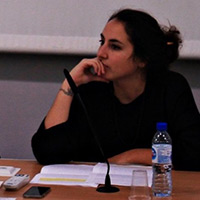
Nashidil Rouiai
Associate Professor
Contact by email
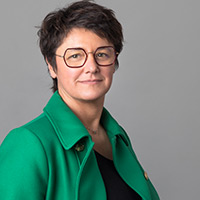
Laurence Geny
Professor
Phone: +33 (0)5.57.57.58.54
Contact by email
Partner establishments :
- Lycée d'Hôtellerie et de Tourisme de Gascogne, Talence
- EPLEFPA Bordeaux-Gironde, Blanquefort
- Ecole du vin de Bordeaux

